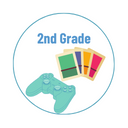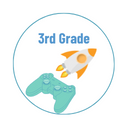Introduction to Method Maths
Method Maths, often referred to simply as "method," is a systematic approach to solving mathematical problems. It encompasses various strategies, techniques, and frameworks designed to streamline mathematical processes and enhance understanding. In this article, we delve into the intricacies of Method Maths, exploring its applications, advantages, challenges, and future prospects.
Understanding the Basics
What is Method Maths?
Method Maths is not a specific mathematical concept but rather a methodology or approach towards solving mathematical problems. It involves breaking down complex problems into manageable steps, applying appropriate techniques, and systematically arriving at solutions.
Continue Reading Below >>>
Multiplication Games | Addition Games| Subtraction Games | Telling Time Games | Fraction Games |
Kindergarten Math Games

Play free preschool and kindergarten math games for kids. Fun math activities for kindergarten
Go to page1st Grade Math Games

Math games for 1st grade students to play games and practice different math topics. Maths games for class 1
Go to page2nd Grade Math Games

2nd grade math games for kids to play and practice math problems. Maths games for 2nd class
Go to page3rd Grade Math Games

3rd grade math games for kids to play and practice math problems. Maths games for class 3
Go to page4th Grade Math Games

4th grade math games for kids to play and practice math problems. Fun math activities for 4th graders
Go to page5th Grade Math Games

5th grade math games for kids to play and practice math problems. Cool math games for 5th graders
Go to page6th Grade Math Games

6th grade math games for kids to play and practice math problems. Math jeopardy 6th grade.
Go to page7th Grade Math Games

7th grade math games for kids to play and practice math problems. Math games for grade 7
Go to page
History and Development
The roots of Method Maths can be traced back to ancient civilizations where rudimentary problem-solving methods were employed. Over time, as mathematics evolved, so did the methodologies for problem-solving. Modern Method Maths incorporates insights from various mathematical disciplines and pedagogical approaches.
Key Concepts
Central to Method Maths are concepts such as problem decomposition, algorithmic thinking, pattern recognition, and logical reasoning. These concepts form the foundation upon which various problem-solving strategies are built.
Applications of Method Maths
Method Maths finds applications across diverse domains, including education, business, finance, science, and engineering.
In Education
In educational settings, Method Maths plays a crucial role in shaping students' mathematical skills and aptitude. It provides a structured framework for teaching and learning mathematics, helping students develop analytical thinking and problem-solving abilities.
In Business and Finance
In business and finance, Method Maths is utilized for financial modeling, risk assessment, optimization, and decision analysis. Businesses leverage mathematical techniques to analyze market trends, forecast outcomes, and make informed strategic decisions.
In Science and Engineering
In scientific research and engineering disciplines, Method Maths aids in modeling physical phenomena, analyzing experimental data, and solving complex equations. From designing algorithms to simulating real-world systems, mathematical methods are indispensable in advancing scientific knowledge and technological innovation.
Advantages of Using Method Maths
Improved Problem-Solving Skills
Method Maths fosters a systematic approach to problem-solving, enabling individuals to tackle complex problems with confidence and efficiency. By breaking down problems into smaller components and applying logical reasoning, individuals can approach challenges more effectively.
Enhanced Critical Thinking
Engaging in Method Maths encourages critical thinking and analytical reasoning. It requires individuals to evaluate different approaches, assess their validity, and choose the most appropriate solution strategy. This cultivates a mindset conducive to logical thinking and rational decision-making.
Efficiency in Decision Making
By applying Method Maths principles, individuals can make better-informed decisions across various domains. Whether in academic, professional, or personal contexts, the ability to analyze data, identify patterns, and derive insights facilitates more effective decision-making processes.
Implementation and Integration
The implementation of Method Maths varies depending on the context, whether in educational curricula, industry practices, or research endeavors.
Educational Curriculum
In educational settings, Method Maths is integrated into mathematics curricula at various levels, from elementary school to higher education. Educators employ diverse teaching methodologies and resources to engage students and enhance their mathematical proficiency.
Industry Practices
In industries ranging from technology and finance to healthcare and manufacturing, Method Maths is applied to solve practical problems, optimize processes, and drive innovation. Professionals with strong mathematical skills are in high demand across sectors, contributing to organizational success and competitiveness.
Research and Development
In research and development, Method Maths serves as a fundamental tool for advancing knowledge and solving complex problems. Researchers utilize mathematical models, simulations, and statistical analysis to explore hypotheses, test theories, and develop new technologies.
Challenges and Limitations
Despite its benefits, Method Maths faces certain challenges and limitations that warrant consideration.
Complexity
Some mathematical problems are inherently complex and may require sophisticated techniques or specialized knowledge to solve. Navigating through intricate problem spaces can be challenging, requiring patience, perseverance, and creativity.
Accessibility
Access to quality education and resources can pose barriers to adopting Method Maths, particularly in underserved communities or developing regions. Addressing issues of equity and inclusivity is essential to ensuring widespread access to mathematical learning opportunities.
Resource Constraints
Implementing Method Maths effectively often requires adequate resources, including trained educators, instructional materials, and technological infrastructure. Limited resources can impede efforts to integrate Method Maths into educational systems or organizational practices.
Future Outlook
Looking ahead, Method Maths is poised to play an increasingly influential role in shaping the future of mathematics education, scientific inquiry, and technological innovation.
Potential Innovations
Advancements in computing technology, artificial intelligence, and data analytics are opening new frontiers for Method Maths, enabling novel approaches to problem-solving and decision-making.
Integration with Technology
The integration of Method Maths with digital tools and platforms holds promise for enhancing learning experiences, facilitating collaborative problem-solving, and democratizing access to mathematical knowledge.
Impact on Various Fields
As Method Maths continues to evolve and expand its reach, its impact will be felt across diverse fields, from education and research to industry and society at large. By fostering mathematical literacy and problem-solving skills, Method Maths empowers individuals to navigate an increasingly complex and interconnected world.
Conclusion
In conclusion, Method Maths represents a versatile and powerful approach to solving mathematical problems, with applications spanning education, business, science, and engineering. By promoting systematic thinking, analytical reasoning, and decision-making skills, Method Maths equips individuals with the tools they need to succeed in an ever-changing landscape.
FAQs
-
What sets Method Maths apart from traditional approaches to problem-solving?
Method Maths emphasizes systematic thinking, logical reasoning, and pattern recognition, providing a structured framework for tackling complex problems.
-
How can educators integrate Method Maths into their teaching practices?
Educators can incorporate Method Maths into lesson plans, activities, and assessments, encouraging students to apply problem-solving strategies and think critically about mathematical concepts.
-
What are some real-world applications of Method Maths?
Method Maths is used in diverse fields, including finance, engineering, healthcare, and technology, for tasks such as optimization, modeling, and decision analysis.
-
What are the challenges associated with implementing Method Maths?
Challenges include addressing complexity in mathematical problems, ensuring accessibility to resources, and overcoming barriers to adoption in educational and organizational contexts.
-
How is Method Maths expected to evolve in the future?
With advancements in technology and pedagogy, Method Maths is likely to evolve towards more interactive, adaptive, and personalized learning experiences, catering to diverse learners and addressing emerging challenges.










